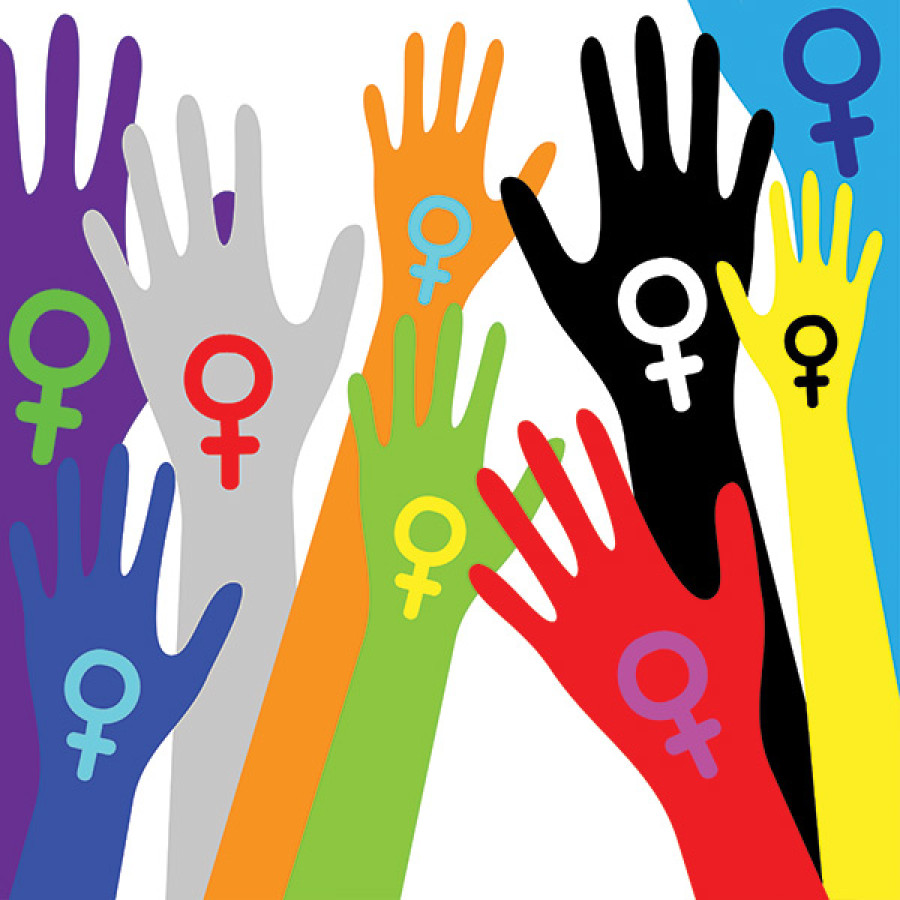Opinion
Need to aim higher
There has been increasing involvement of women in public life in recent years, which certainly is a good step. Women, too, have proved themselves, scaling new heights and transforming society for the better.
There has been increasing involvement of women in public life in recent years, which certainly is a good step. Women, too, have proved themselves, scaling new heights and transforming society for the better. Many steps have been taken to enhance women’s engagement in public affairs, but they are not enough.
Women need more than what we are offering in terms of education, exposure and opportunities. In Nepal, a few women have certainly climbed to the top of the ladder. Sushila Karki, who became the first female Chief Justice of the Supreme Court, can be taken as the best example.
Similarly, President Bidhya Devi Bhandari, and the then Speaker of Parliament, Onsari Gharti Magar, are two other examples of women occupying the highest offices in the country.
It was a unique time in Nepal’s history when the heads of the executive, the judiciary and the legislature were all women. This was no small achievement, and all this happened primarily because the new constitution opened the way for women and marginalised groups in society.
Tremendous progress could be noticed in the representation of women in various sectors with the beginning of constitutional democracy. Recently, an overwhelming number of women representatives were elected in the local level elections. This certainly is a result of the various progressive steps taken in recent years.
Running on belief
The increase in women’s representation should not make us complacent. It is also bitter reality that very few women candidates were nominated by the parties for the federal and provincial elections in the First-Past-the-Post (FPTP) system.
As a result, it seems that the political parties will fulfil the quota for women candidates through the proportional representation system which will not allow them to hold key positions. Most political parties have argued that women cannot join politics through direct elections.
It is worrisome that the large parties are not seriously concerned about women’s participation. It is widely expected that they will increase the number of women candidates during the next election.
In a parliamentary system, it is the responsibility of the parties to nominate the candidates. There is no reason why they cannot win the election if they are backed by their parties. It is entirely the belief of those who run the parties.
The minimal participation of women does not necessarily mean that they are incompetent. The actual reason is that the entrenched patriarchal society does not want to change the power structure.
In addition to providing opportunities to women, we also need to empower them through education and skill training. Since the entire political system is male dominated, women have to develop their capacity academically and financially to prove that they can bring changes in society. The existing patriarchal mind-set does not believe that women should seek change.
The stereotyped methodologies that have been adopted so far in the name of empowerment should be abandoned. This empowerment formula is totally flawed and has only helped the elite to climb higher up the ladder.
Most of the approaches have not been able to distinguish right from wrong. Statistics alone are not an indication that their active participation has increased. In terms of statistics, the literacy rate for women has certainly jumped in recent years; but it is still very low compared to the male literacy rate.
In order to reverse the cycle of the power structure which certainly will not be easy, we need to bring more women into public life. A balanced society is only possible when there is a level playing field for both genders because society consists of both male and female members.
Similarly, a lot of discussion has gone off track as it has only separated women from men and vice versa in many Third World countries including Nepal. One of them is ‘gender discourse’ which does not necessarily provide space for women’s equality.
It once again focuses more on ‘men’ which perhaps is not the case, at least here in Nepal. Here, encouraging greater participation of women in public life requires a somewhat different methodology. The confinement of women is certainly not good.
Limited access
It is said that the increasing level of women’s representation in politics and at the policymaking level is remarkable. Their mobility towards leadership positions is yet another laudable factor.
But this certainly is not enough due to the reason that only those who have moved towards the leadership level have gained access to power. This approach is a hurdle and blocks change as it does not allow capable women to reach positions of power because they have no access.
This is where we have to intervene. And this will be good not only for women, but also for men. This certainly is a product of the patriarchal mind-set, and we have to understand what it really is in our context.
Patriarchy exists everywhere, and also in every field. It has nothing to do with ‘male’ and ‘cultural aspects of society’; but the way it has been interpreted by local and foreign scholars and policymakers is the problem.
Also, nothing can happen overnight; but things certainly are changing slowly and steadily. We should not simply make a project out of women’s problems; rather, we should make things happen in practical life.
With support, opportunities and guidance from the concerned sectors, women’s self-empowerment will materialise. What we really need is a collective effort that can help women reach their goal.
- Adhikari, who has an MA in English literature from TU, works as a freelancer




 9.89°C Kathmandu
9.89°C Kathmandu









